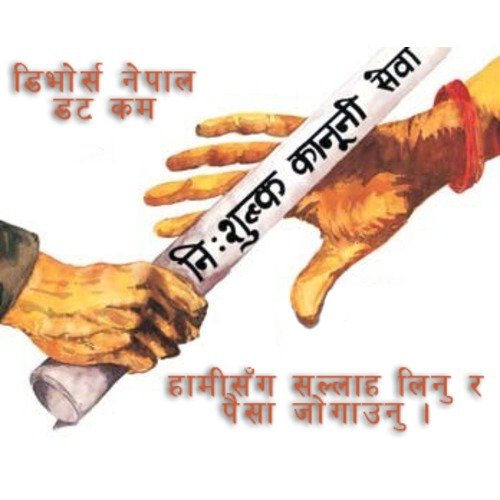Best Civil & Human Rights Lawyers in Hetauda
Share your needs with us, get contacted by law firms.
Free. Takes 2 min.
List of the best lawyers in Hetauda, Nepal
About Civil & Human Rights Law in Hetauda, Nepal
Civil and Human Rights law in Hetauda, Nepal is grounded in the Constitution of Nepal, which guarantees every individual freedom of expression, freedom of religion, freedom of assembly, and the right to equal treatment under the law. This encompasses rights related to gender, caste, ethnicity, and religion. Moreover, Nepal is a signatory to various international treaties geared towards promoting and safeguarding human rights.
Why You May Need a Lawyer
You may require a lawyer to guide you when you believe your civil rights have been violated. This could range from cases of discrimination due to caste, gender, or ethnicity to freedom of expression and assembly. A lawyer can help you understand your rights and explore possible legal avenues to ensure just treatment.
Local laws Overview
Local laws in Hetauda, like the rest of Nepal, strictly enforce the protection of individuals against discrimination, and ensure economic, social, and cultural rights. Anti-discrimination laws protect citizens from any form of discrimination based on race, caste, religion, gender, political opinion, and origin. This includes rights to employment, education, public services, and right to public places. Furthermore, laws also protect the freedoms of speech, expression, religion, political rights, and securing protection against torture.
Frequently Asked Questions
1. What are my basic human rights in Hetauda, Nepal?
Your basic rights include the right to life, equality before the law, freedom of thought and expression, freedom of assembly, right to privacy, and freedom from discrimination based on caste, gender, race, religion, among others.
2. What should I do if my rights are violated?
If you believe your rights have been violated, it's advisable to consult with a lawyer who specializes in civil and human rights law. They can guide you on the best course of action.
3. Can I file a case against a government official?
Yes, the law allows for any citizen to file a case against a government official if they believe their rights have been infringed upon.
4. What is the role of the National Human Rights Commission?
The National Human Rights Commission is a statutory body that investigates any allegations of human rights violations, makes recommendations to the government, and works to promote human rights education and awareness.
5. Are there organizations that can help me understand my rights?
Yes, there are numerous non-governmental organizations that work on civil and human rights in Nepal and they often provide resources, legal aid, and other support for those in need.
Additional Resources
The National Human Rights Commission and other non-governmental organizations such as Human Rights Organization of Nepal (HURON), and Informal Sector Service Centre (INSEC) are helpful resources. You can also refer to the Constitution of Nepal for detailed information on your rights.
Next Steps
If you need legal assistance related to civil and human rights, start by consulting with a lawyer. If you cannot afford one, reach out to local NGOs, as they may provide pro bono services. Keep detailed records of any incidents you believe violated your rights. Importantly, always remember to act promptly in seeking legal assistance, as delays can affect your case.
Lawzana helps you find the best lawyers and law firms in Hetauda through a curated and pre-screened list of qualified legal professionals. Our platform offers rankings and detailed profiles of attorneys and law firms, allowing you to compare based on practice areas, including Civil & Human Rights, experience, and client feedback.
Each profile includes a description of the firm's areas of practice, client reviews, team members and partners, year of establishment, spoken languages, office locations, contact information, social media presence, and any published articles or resources. Most firms on our platform speak English and are experienced in both local and international legal matters.
Get a quote from top-rated law firms in Hetauda, Nepal — quickly, securely, and without unnecessary hassle.
Disclaimer:
The information provided on this page is for general informational purposes only and does not constitute legal advice. While we strive to ensure the accuracy and relevance of the content, legal information may change over time, and interpretations of the law can vary. You should always consult with a qualified legal professional for advice specific to your situation.
We disclaim all liability for actions taken or not taken based on the content of this page. If you believe any information is incorrect or outdated, please contact us, and we will review and update it where appropriate.
Browse civil & human rights law firms by service in Hetauda, Nepal
Hetauda, Nepal Attorneys in related practice areas.








